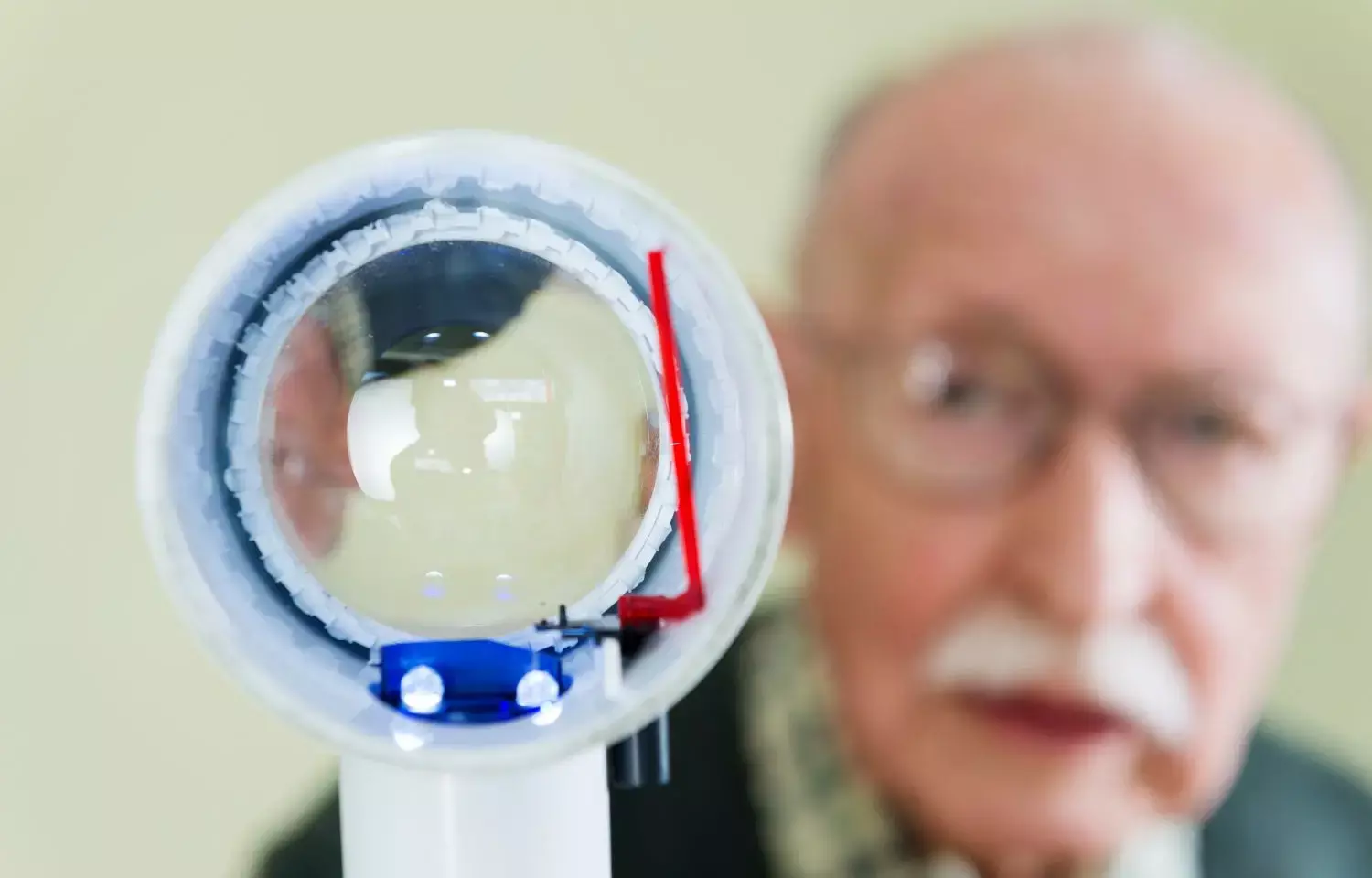- Home
- Medical news & Guidelines
- Anesthesiology
- Cardiology and CTVS
- Critical Care
- Dentistry
- Dermatology
- Diabetes and Endocrinology
- ENT
- Gastroenterology
- Medicine
- Nephrology
- Neurology
- Obstretics-Gynaecology
- Oncology
- Ophthalmology
- Orthopaedics
- Pediatrics-Neonatology
- Psychiatry
- Pulmonology
- Radiology
- Surgery
- Urology
- Laboratory Medicine
- Diet
- Nursing
- Paramedical
- Physiotherapy
- Health news
- Fact Check
- Bone Health Fact Check
- Brain Health Fact Check
- Cancer Related Fact Check
- Child Care Fact Check
- Dental and oral health fact check
- Diabetes and metabolic health fact check
- Diet and Nutrition Fact Check
- Eye and ENT Care Fact Check
- Fitness fact check
- Gut health fact check
- Heart health fact check
- Kidney health fact check
- Medical education fact check
- Men's health fact check
- Respiratory fact check
- Skin and hair care fact check
- Vaccine and Immunization fact check
- Women's health fact check
- AYUSH
- State News
- Andaman and Nicobar Islands
- Andhra Pradesh
- Arunachal Pradesh
- Assam
- Bihar
- Chandigarh
- Chattisgarh
- Dadra and Nagar Haveli
- Daman and Diu
- Delhi
- Goa
- Gujarat
- Haryana
- Himachal Pradesh
- Jammu & Kashmir
- Jharkhand
- Karnataka
- Kerala
- Ladakh
- Lakshadweep
- Madhya Pradesh
- Maharashtra
- Manipur
- Meghalaya
- Mizoram
- Nagaland
- Odisha
- Puducherry
- Punjab
- Rajasthan
- Sikkim
- Tamil Nadu
- Telangana
- Tripura
- Uttar Pradesh
- Uttrakhand
- West Bengal
- Medical Education
- Industry
VEGF inhibitors may reduce all-cause mortality in nAMD patients

A recent study published in the Ophthalmology Science, assessed the safety concerns surrounding intravitreal VEGF inhibitors in the treatment of neovascular age-related macular degeneration (nAMD). This nationwide register-based cohort analysis spanned for 16 years to assess the impact of VEGF inhibitor treatment on the risk of all-cause mortality and cardiovascular disease (CVD) among the patients with nAMD.
The findings of the study involved over 37,000 patients with nAMD exposed to VEGF inhibitors and nearly 1.9 million unexposed individuals without nAMD. On the positive side, the patients with nAMD undergoing VEGF inhibitor treatment showed a reduced risk of all-cause mortality when compared to their counterparts without nAMD. This finding suggests that VEGF inhibitor treatment may not just be effective in nAMD management but could also contribute to improved overall survival rates in these patients.
Also, the study uncovered an increased risk of CVD in patients with nAMD who were receiving VEGF inhibitors. While the exact mechanism behind this relationship remains unclear, it raises major queries about the systemic effects of VEGF inhibitors beyond their intended ocular benefits.
Additional analyses into the dosing patterns and timing of VEGF inhibitor exposure revealed precise results. While the decreased risk of all-cause mortality persisted across different dosing regimens, there was no significant association between VEGF inhibitor treatment and CVD when considering shorter exposure periods after injection.
The study provides crucial insights into the safety profile of VEGF inhibitors for nAMD patients with decreased risk of mortality that is mostly influenced by the factors beyond the direct physiological effects of VEGF inhibitors, such as the overall health status and resilience of patients undergoing this treatment.
Source:
Thinggaard, B. S., Frederiksen, K., Subhi, Y., Möller, S., Sørensen, T. L., Kawasaki, R., Grauslund, J., & Stokholm, L. (2024). VEGF Inhibition Associates With Decreased Risk of Mortality in Patients With Neovascular Age-related Macular Degeneration. In Ophthalmology Science (Vol. 4, Issue 3, p. 100446). Elsevier BV. https://doi.org/10.1016/j.xops.2023.100446
Neuroscience Masters graduate
Jacinthlyn Sylvia, a Neuroscience Master's graduate from Chennai has worked extensively in deciphering the neurobiology of cognition and motor control in aging. She also has spread-out exposure to Neurosurgery from her Bachelor’s. She is currently involved in active Neuro-Oncology research. She is an upcoming neuroscientist with a fiery passion for writing. Her news cover at Medical Dialogues feature recent discoveries and updates from the healthcare and biomedical research fields. She can be reached at editorial@medicaldialogues.in
Dr Kamal Kant Kohli-MBBS, DTCD- a chest specialist with more than 30 years of practice and a flair for writing clinical articles, Dr Kamal Kant Kohli joined Medical Dialogues as a Chief Editor of Medical News. Besides writing articles, as an editor, he proofreads and verifies all the medical content published on Medical Dialogues including those coming from journals, studies,medical conferences,guidelines etc. Email: drkohli@medicaldialogues.in. Contact no. 011-43720751


